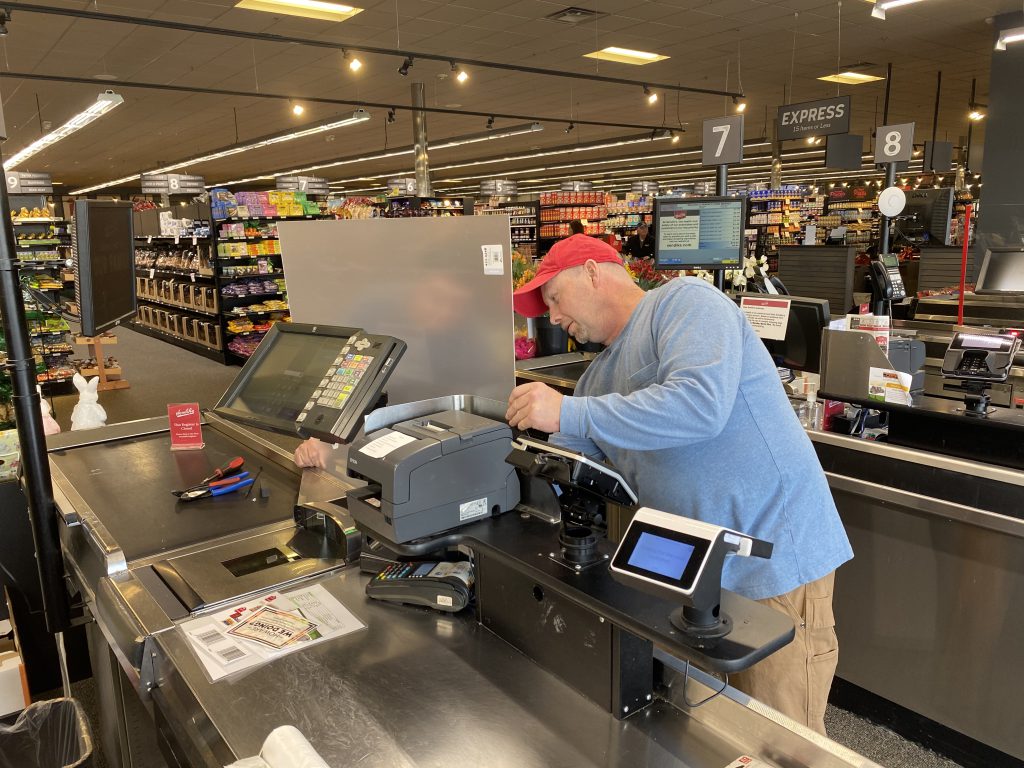Will COVID-19 Change Grocery Shopping Forever?
All the city news you can use.
Want more links to read? Visit The Overhead Wire and signup. Every day at The Overhead Wire we sort through over 1,500 news items about cities and share the best ones with our email list. At the end of the week, we take some of the most popular stories and share them with Urban Milwaukee readers. They are national (or international) links, sometimes entertaining and sometimes absurd, but hopefully useful.
After Coronavirus, your shopping experience could change: Despite technological advancements in stock and supply chain monitoring, many grocery stores still operate the way they have for over 30 years, monitoring items on clip boards and purchasing using matrix paper. As more people try to shop from home now and in the future, this is likely to change, and many observers believe that grocery shopping will change forever, and the grocers will gain a stronger grip on household purchases, consolidating the industry even more. (Ian Bogost | The Atlantic)
Mapping streets shows it’s difficult to distance on sidewalks alone: Meli Harvey, an urban planner working for Sidewalk Labs, developed a visualization determining how difficult it is to be physically distant on New York City streets. Actual data on sidewalks is hard to come by, but she was able to measure the width of streets and noted how too much space is given to cars, especially now. Mayor Bill de Blasio has been resistant to open up streets and even a good visualization doesn’t seem to sway him. (Gwen Aviles | NBC News)
Milan planning for a people oriented future: Milan Italy in the northern Lombardy region hit hard by the coronavirus has announced that 22 miles of streets will be transformed over the summer into streets for bikes and people. The changes have been inspired in part by the enormous pollution reductions resulting from the Coronavirus lockdowns but also as a way to defend an economy that depends on people being outside at restaurants, bars, and supporting the arts. (Laura Laker | The Guardian)
A home co-ownership model with short term potential, long term danger: As homeownership becomes out of reach for younger city dwellers and the Coronavirus crisis is likely to kick people out of homes, discussion of a new ownership model is emerging. Co-ownership, where investors help homeowners with either down payments or home equity loans, can help people afford to buy homes to which they might not otherwise have access. But there’s a downside, including rent like dividends paid to investors and now the idea that companies with lots of capital can swoop in to perhaps keep people in their homes, but in a way that could be predatory. (Issi Romem | New York Times)
Quote of the Week
We have jobs in the Inland Port. But sometimes because of a lack of transportation, [employees] can’t get to work on time. Then the companies have to retrain another employee, and it may cost $3,500 a year to train another employee.
-Dallas City Council Member Tennell Atkins in the Texas Observer discussing transportation access issues in the region.
This week on the podcast, University of Iowa Law Professor Greg Shill talks about how the law and tax code promotes automobile use over active transportation.
Want more links to read? Visit The Overhead Wire and signup. (http://dtrnsfr.us/2iA8Yas)
If you think stories like this are important, become a member of Urban Milwaukee and help support real, independent journalism. Plus you get some cool added benefits.
Urban Reads
-
Congestion Pricing Cuts Air Pollution in New York City
 Dec 14th, 2025 by Jeff Wood
Dec 14th, 2025 by Jeff Wood
-
We Think We Love to Drive. But Do We Really?
 Dec 7th, 2025 by Jeff Wood
Dec 7th, 2025 by Jeff Wood
-
Can Scott Wiener Tackle America’s Housing Crisis?
 Nov 23rd, 2025 by Jeff Wood
Nov 23rd, 2025 by Jeff Wood





















